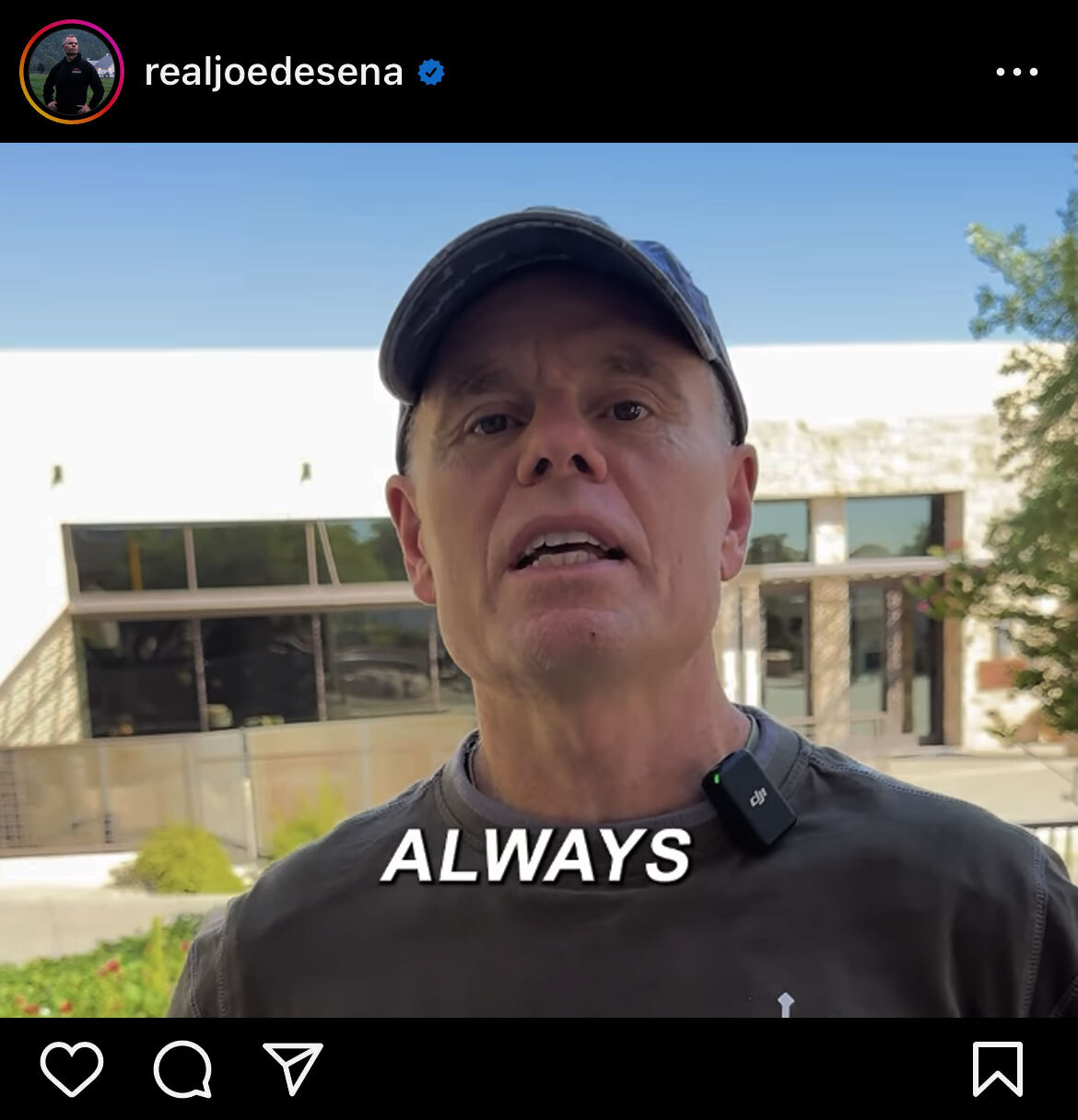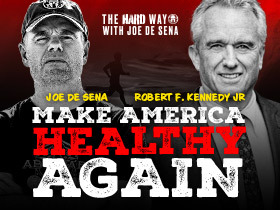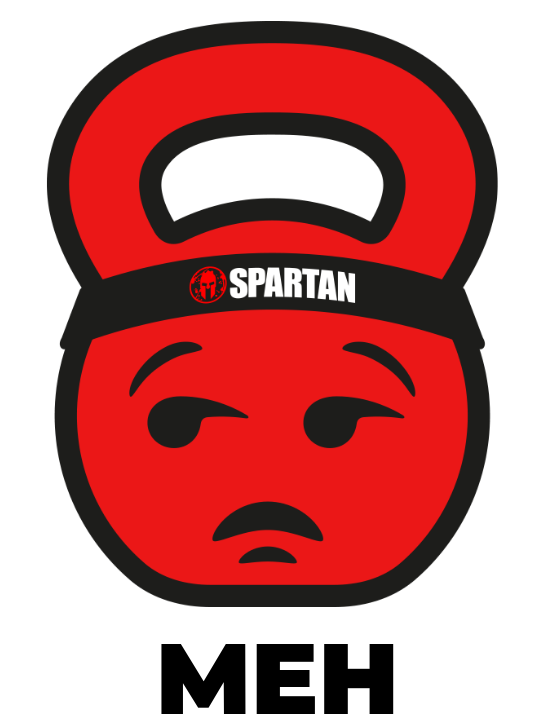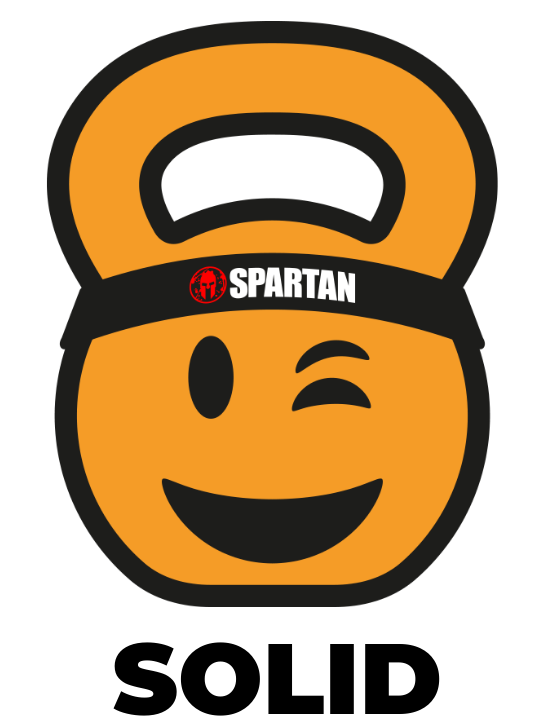 | | In today's edition, Joe shares: - How to be a Better Communicator
- Why Athletes Should Meditate
- Motivation for Living the Hard Way
| | | | Spartans!
In this week's episode of The Hard Way podcast, I had the incredible opportunity to spend a day with Robert F. Kennedy Jr, nephew of John F. Kennedy. From the moment we sat down to talk, I could sense that this conversation was going to be memorable.
First I should preface: This isn't meant to be a political statement. I've interviewed and spent time with countless humans who represent a variety of political and religious perspectives. There's always something to learn or be curious about. Think what you want—I'm just excited to share what I learned from someone who really wants to get us healthy.
RFK and I filmed an episode together, but what struck me most wasn't just the content we covered. It was RFK himself. His presence, his demeanor, and his way of communicating were truly something special. It's a rare quality that only a few people I've met possess.
I've noticed this quality in a handful of others—people like Gabby Reece, Gerard Butler, Prince Harry, and Richard Branson. What ties them all together isn't just their fame or success, but their ability to communicate deeply.
It's a honed skill, built through years of practice, reflection, and a deep understanding of themselves and the world around them.
RFK spoke candidly about the obstacles he and his family have faced throughout his life. He shared stories about how he was raised to face challenges head-on. He expressed the idea that hardship is not something to be avoided but embraced and overcome. His narrative was focused on our conversation, but highly personal to himself.
As the conversation unfolded, I felt the depth of his attention to the conversation. He really listened. It's a skill that's often overlooked, but the ability to truly listen is at the core of meaningful communication.
The more we talked, the more I realized that true communication is about making others feel understood, validated, and inspired. It's about sharing your knowledge, your experience, and your story in a way that resonates on a deeper level.
Good communicators make you feel like you're the only person in the world at that moment. It's an ability that few truly master, but those who do leave a lasting impact.
Whether you're managing a team at work, meeting a friend for lunch, or coordinating what's for dinner with your spouse tonight, strong communication will change your life.
I talk a lot about how our brain is inherently lazy and always looking for the easy way out. It's designed to conserve energy, which is why it resists doing hard things like waking up early, exercising, or even having those tough conversations that are critical for success.
So jump into those hard conversations and practice communicating the Hard Way.
Here are my tips to improve the way you connect to others: - Drop Distractions: When you're talking, be present. Put the phone down, turn off the noise, and actually focus on the person in front of you. Really listen instead of rehearing what you're going to say next. Non-verbal cues like nodding go a long way to show the other person you are focused on them.
- Ask Questions: Don't assume you know it all. A big mistake is to be afraid to dig deeper and ask questions when you don't understand or want to learn more.
- Tell Stories: What surprised me most during our conversation was how quickly RFK dove into relevant stories from his own life. He opened up about his family's life, the challenges they faced, and how he's been shaped by a life of enduring hard things. He had only known me for a short time, but it felt as if we had years of shared history.
- Give a F*ck: Show people you care. If you're not invested in the conversation, don't bother. Care enough to get involved and make a difference. People can sense when you're just going through the motions.
Check out the podcast episode and let me know what you think.
Here's to The Hard Way!
Joe | | | 4 Meditation Benefits for Athletes | You may know meditation can reduce your risk of anxiety, depression, insomnia, and even more serious conditions like heart attacks and strokes. It can also make you a better athlete.
1. Meditation Develops Mental Grit
Meditation helps build resilience by keeping you focused and calm when physically exhausted. A Scandinavian Journal of Medicine and Science in Sports study showed that those who practice Transcendental Meditation techniques are able to develop similar brain-functioning characteristics to world-class athletes: enhanced focus and comprehension, along with broad and proactive planning.
2. Meditation Teaches Proper Breathing Techniques
Proper breathing helps your body efficiently deliver oxygen to your cells, so you can go harder during heavy lifts and long distances. Instead of exhausting yourself with shallow and rapid breathing, sticking to a consistent meditation practice will develop muscle memory for steady rhythmic breathing through your nose and from your diaphragm. This prevents overall muscular fatigue so you can prioritize your energy on the physical feat ahead of you.
3. Meditation Increases Your Pain Tolerance
A Frontiers in Human Neuroscience study found that mindfulness exercises like those practiced during meditation enable your brain to not only process pain more efficiently, but to actually control it. A higher pain tolerance gets you through those last excruciating miles of a marathon or an Ultra (when everything hurts).
4. Meditation Lowers Cortisol Levels
While exercise does help lower stress levels, overtraining without proper recovery can increase levels of the stress hormone cortisol. Studies show that meditation decreases the release of cortisol by activating the parasympathetic nervous system. Program meditation into a recovery day of your training plan to offset the stress of a heavy training load and a busy life while strengthening your mindset, too. | | | | | You Ask, Joe Answers | Q: Hey Joe, How do you continue to maintain the Spartan ethos and spirit when those around you do not? Seeking the uncomfortable and aiming to never settle for "good enough"' has alienated most friends and family members.
- Tim M.
A: Hey Tim, Not everyone's going to get it. As you've discovered, there are some people who just coast through life. You don't need to unfriend them, but you need to minimize their influence on your life. The right people, the ones who challenge you and elevate you, will come if you stay on your path. Join your local Spartan Facebook group and you'll see what I mean.
Aroo!
Question for Joe? Want to tell him what you think of The Hard Way? Email him at thehardway@spartan.com. | | | | They Said It | | "Do not wait to strike till the iron is hot, but make it hot by striking." | | – William Butler Yeats | | | To keep receiving this newsletter, sign up here. | | | WHAT DO YOU THINK OF THIS NEWSLETTER? | | |






No comments:
Post a Comment